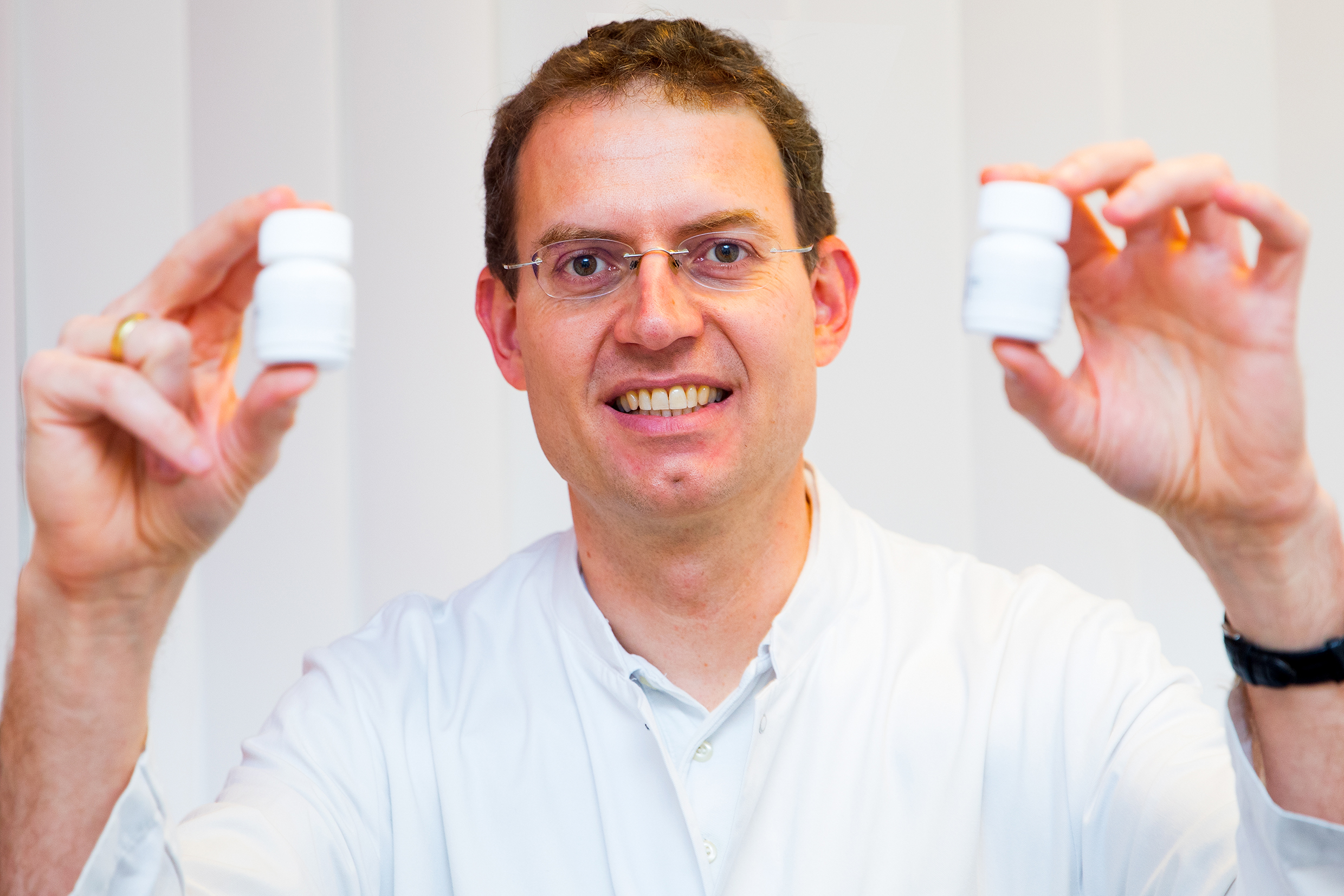The MHH is looking for subjects with an IDH1 gene mutation for a multicenter study on the combination therapy of two drugs previously used individually against acute myeloid leukemia (AML)

Wants to prolong the survival of AML patients by combining two drugs: Professor Dr. Michael Heuser Copyright: MHH / Karin Kaiser
28.04.2023
Acute myeloid leukemia (AML) is a malignant disease in which the precursor cells of the hematopoietic system proliferate uncontrollably. This form of blood cancer is caused by genetic changes in the bone marrow that occur in the course of life. It is therefore mainly older people who are affected. If left untreated, AML leads to death within a few weeks. Already last year, an international study with the participation of Professor Dr. Michael Heuser, Senior Physician at the Department of Hematology, Hemostaseology, Oncology and Stem Cell Transplantation at the Hannover Medical School (MHH), showed that the combination of two drugs previously used individually against AML triples the survival time of AML patients. Now the hematologist wants to investigate a similar approach in a new multicenter study. This will involve combining one of the drugs already being tested with another agent that has so far been used to treat anemia associated with chronic kidney disease. Volunteers are still being sought who would like to take part in the study. German Cancer Aid is funding the project with one million euros over four years.
Combination therapy to inhibit cancer development
In the earlier clinical trial, Professor Heuser, who also heads the Research Strategy and Translational Research department at the CCC Hannover, combined the active ingredients ivosidenib and azacitidine. While the former inhibits a specific gene-modified enzyme called IDH1 that promotes the development of blood cancer cells, the latter prevents cancer cells from growing. The combination of the two drugs improved survival in people newly diagnosed with AML that had gene alterations in the IDH1 enzyme. However, the standard treatment is currently still either chemotherapy or stem cell transplantation.
In the current study, the physician is focusing on patients for whom such standard therapy is unsuccessful or who, after initial improvement, have subsequently relapsed. They are to be treated with the IDH1 inhibitor ivosidenib in combination with the active substance molidustat. The drug stimulates the production of blood pigment and red blood cells and is approved for the treatment of anemia in chronic kidney disease. "In preclinical studies, we discovered that the cancer-promoting effect of the mutant IDH1 enzyme is dependent on a protein called PHD3," explains the hematologist. Molidustat inhibits the protein PHD3. Together with ivosidenib, a targeted attack of cancer development occurs via two flanks.
Clinical study in humans
The combination has already been shown to work in human AML cell cultures and in mouse models. Now the efficacy, safety and tolerability of the new therapy are to be tested in a human clinical trial. Subjects are still being sought for this purpose. "We expect that treatment with molidustat and ivosidenib will prolong the survival of patients with IDH1-mutated AML who have already received ineffective pretreatment or have relapsed," says Professor Heuser. The first phase will determine the optimal dosage of molidustat. In the second phase, the recommended dose of molidustat will be administered to additional patients. Both active ingredients will be administered as tablets.
Participants sought
Patients with relapsed or refractory IDH1-mutated AML who have received at least one prior therapy and are not eligible for intensive salvage chemotherapy and/or allogeneic hematopoietic stem cell transplantation or who refuse standard therapy are being sought. Interested parties may contact Professor Heuser at heuser.michael@mh-hannover.de or phone (0511) 532-3720.